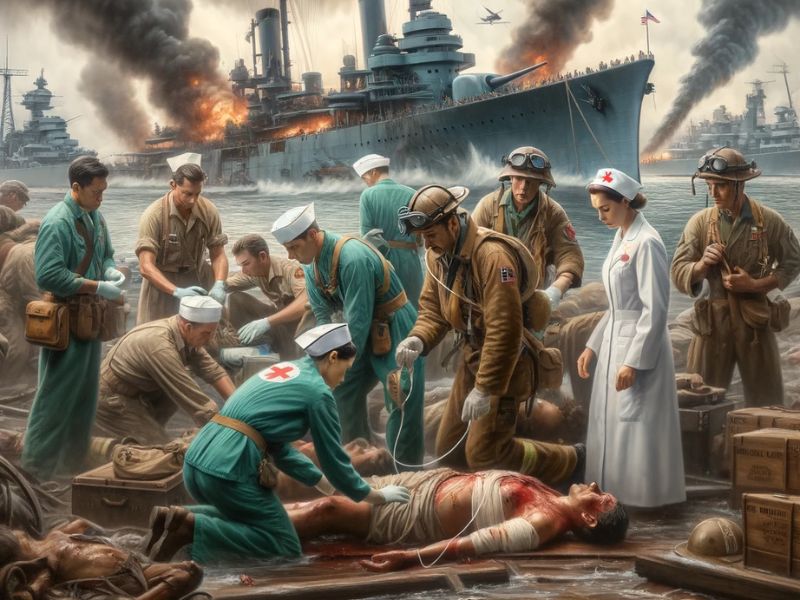
Shadow Heroes of Pearl Harbor: Frontline Medics and Rescuers
Reflecting on the medical response and heroism during the attack on December 7, 1941
The Initial Impact and Immediate Response
The attack on Pearl Harbor on December 7, 1941, remains one of the most tragic moments in United States history. The images of sinking ships and rising smoke from the harbor have become iconic symbols of that fateful day. However, behind these images are less-known stories of heroism and sacrifice. The initial moments after the attack saw a swift mobilization of doctors, nurses, and rescue personnel. Despite the chaos and danger, these individuals responded with courage, providing immediate assistance to the injured, many suffering from severe burns or shrapnel wounds.
The Strain on Medical Services
The attack severely tested the medical services at Pearl Harbor. The naval hospital and surrounding medical facilities were quickly swamped with victims. Doctors and nurses worked tirelessly, often non-stop, to treat the injuries of hundreds of military personnel and civilians. The efficiency and determination of the medical staff in these critical hours were pivotal in saving numerous lives. Their work not only demonstrates professional competence but also remarkable human resilience in the face of such a vast tragedy.
Lieutenant Annie G. Fox: An Exemplar of Bravery
Among the figures that emerged during the attack, Lieutenant Annie G. Fox played a crucial role. As the head nurse at the Pearl Harbor naval hospital, Fox suddenly found herself at the epicenter of the emergency. With great courage, she coordinated the rescue operations, assisting the wounded and organizing the distribution of medical resources. Her leadership and composure under pressure were exemplary. For her heroism, Fox became the first woman in U.S. history to receive the Purple Heart, an award traditionally reserved for military personnel wounded or killed in battle.
Stories of Hidden Heroism
Beyond Lieutenant Fox, many others displayed extraordinary heroism. Doctors and nurses faced direct danger to save lives, often risking their own. These stories of sacrifice and bravery represent a crucial part of Pearl Harbor’s legacy, a testament to humanity that endures even in the darkest moments.
A Lasting Legacy and Lessons Learned
The attack on Pearl Harbor not only marked a turning point in world history but also left a lasting legacy in emergency management and war medicine. The lessons learned in terms of preparedness, rapid response, and management of medical resources in extreme emergency situations have been crucial in the development of more effective emergency response systems and emergency medicine. The heroism of the rescue and medical staff at Pearl Harbor remains a benchmark and inspiration for all those working in emergency situations.
Final Reflections
As we remember Pearl Harbor, it’s vital to recognize and honor not just those who lost their lives, but also those who responded with unconditional bravery. Their legacy continues to influence modern practices in emergency medicine and rescue, reminding us of the value of sacrifice, courage, and preparedness in crisis situations.


